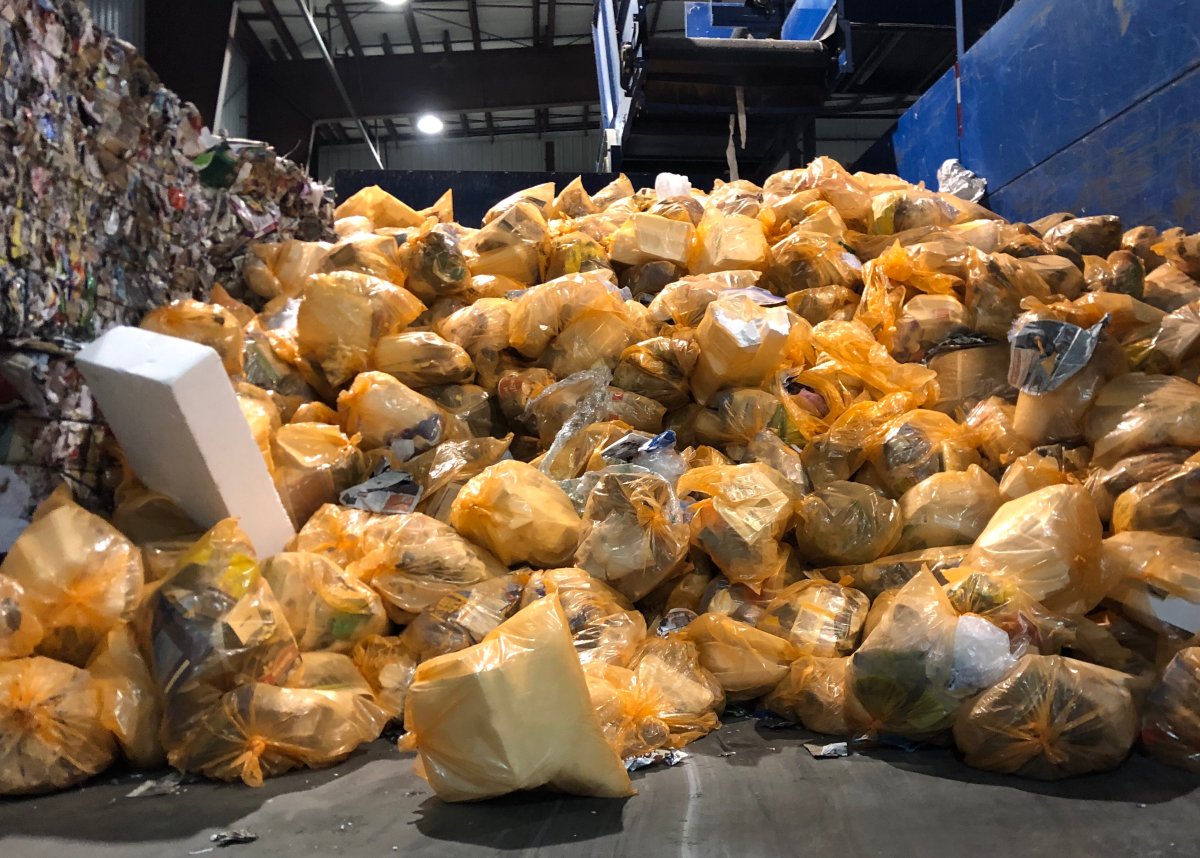A first of its kind for London and Canada, the city is starting a pilot project to reduce the amount of hard-to-recycle and non-recyclable plastics that end up in landfills.

The Heft Energy Bag Pilot Project aims to divert plastic away from landfills by giving Londoners a third recycling option, aside from paper and plastic.
“We are estimating anywhere from three to five per cent of these materials could be transferred into an orange bag, but on a volume base it could be anywhere from 10 and upwards of 20 per cent,” said Jay Stanford, director of environment fleet and solid waste for the City of London.
The project was launched six weeks ago, with 13,000 London households participating in a curbside pickup or EnviroDepot drop off.
https://platform.twitter.com/widgets.js
This allows people to put hard-to-recycle and non-recyclable plastic items like food pouches, candy wrappers and pet food bags into an orange bag, which the city will pick up as part of regular curbside recycling.
“What happens is sometimes people think these are recyclable items and place them in the blue box and that does contaminate the traditional recyclable materials,” said Stanford.
“That’s why this is completely separate.”
As part of the project, the city partnered with several businesses to repurpose the plastic for making natural gas and materials like flooring and patio furniture.
“We take any organic material, including plastics, then convert that into a hydrogen-enriched methane and we separate those gases which we will be putting into the pipeline,” Jeff Shields, President of Green Shields Energy.
Green Shields Energy is an energy company that makes renewable natural gas out of 100 per cent recyclable materials.
“Our focus is waste diversion, so keeping materials with other uses out of landfills, to help reduce the expansion landfills.”

So far, Stanford said, most of the feedback has been positive, with more households being added as part of phase two in January.
Anyone wanting more information about the project can attend one of three open houses scheduled for later this week.
He added that although many people may be eager to join, it will be gradually rolled out. It will take another year or two before they know if it can be successful on a larger scale, Stanford said.
- Enter at your own risk: New home security camera aims paintballs at intruders
- Boston Dynamics unveils ‘creepy’ new fully electric humanoid robot
- Ontario First Nation calls for chemical plant to be shut down amid ‘dangerously high’ benzene levels
- Nova Scotia scraps spring bear hunt idea, public ‘very divided’ on issue








Comments